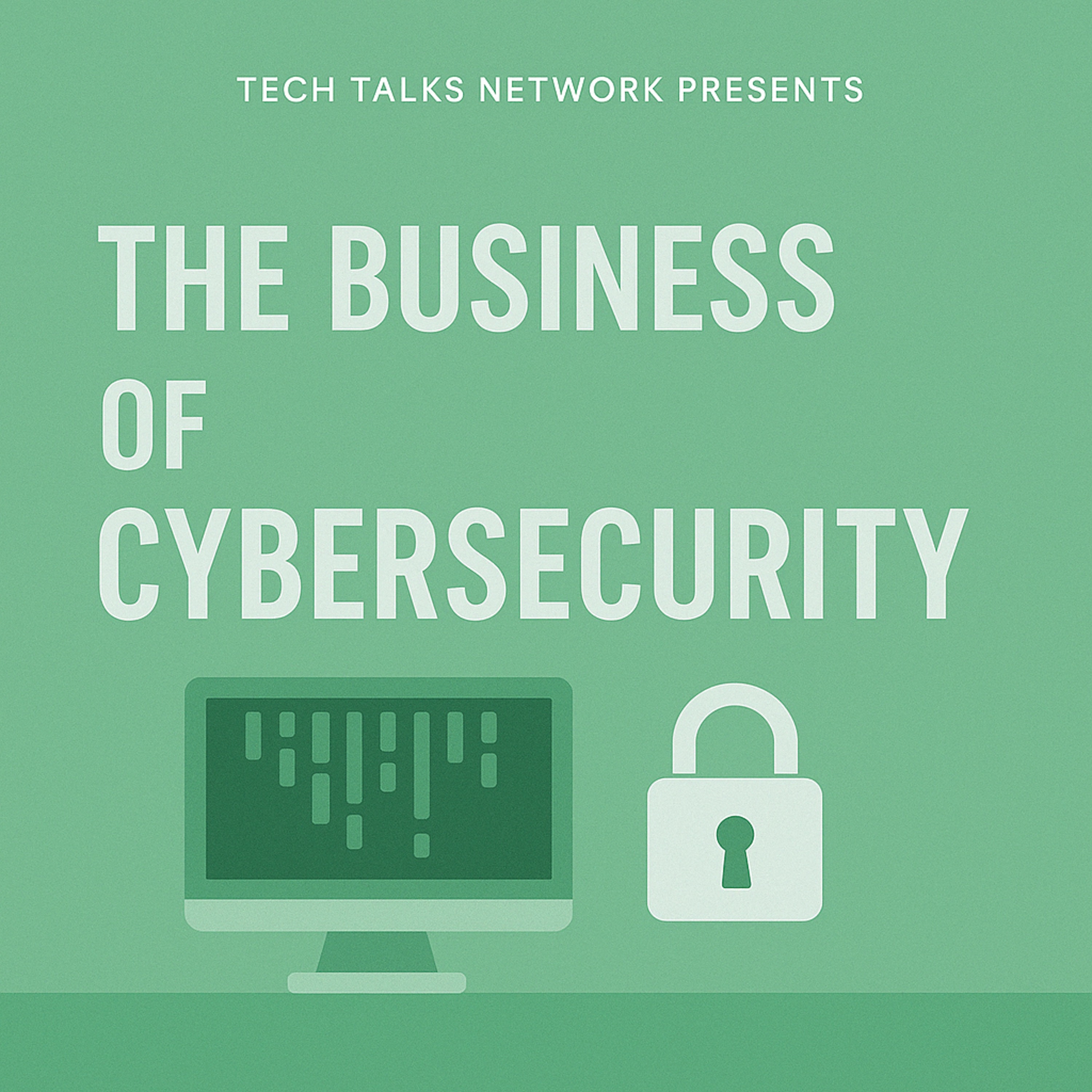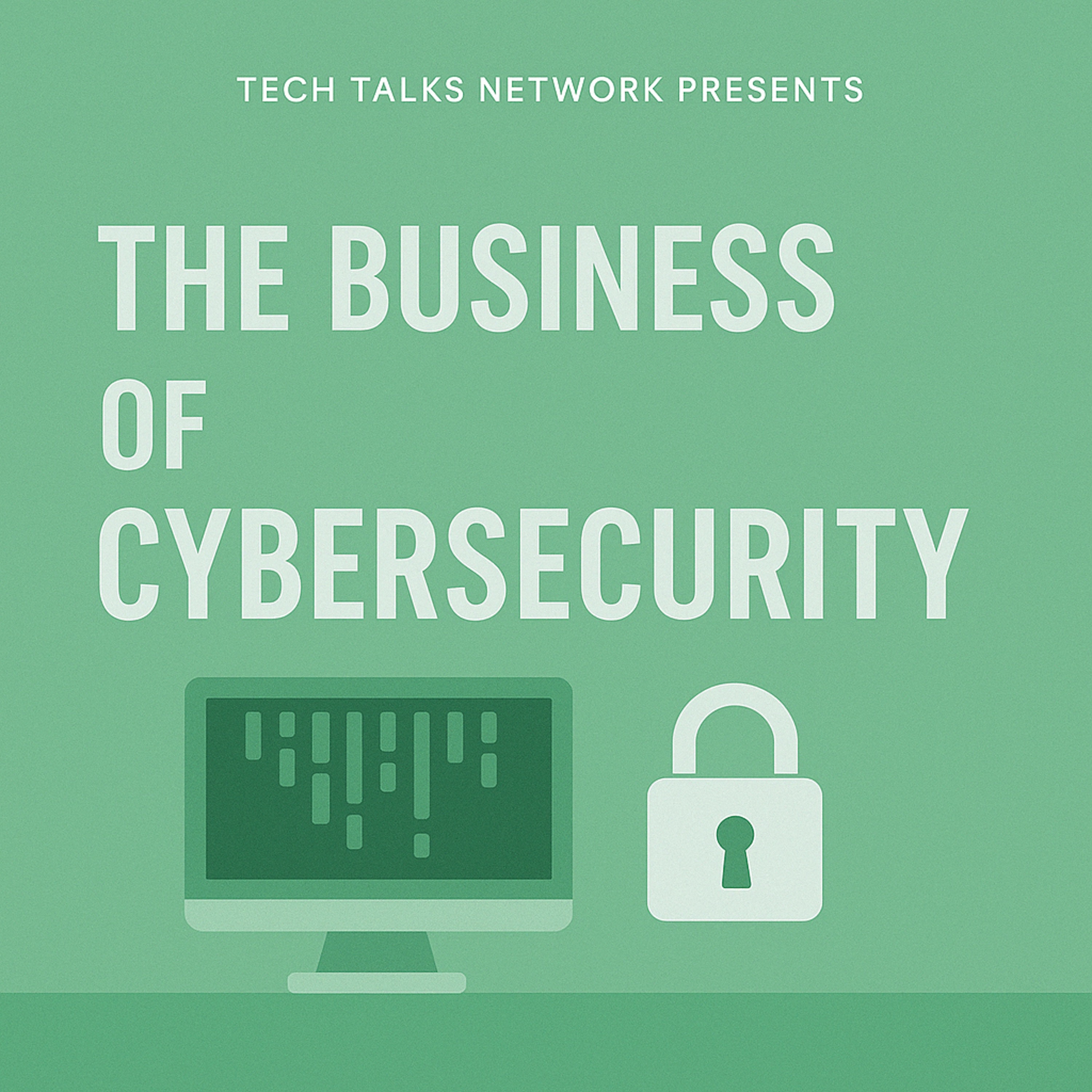The Business of Cybersecurity
Podcast Description
The Business of Cybersecurity is a podcast from the Tech Talks Network that explores where security and business strategy converge.Hosted by Neil C. Hughes, creator of the Tech Talks Daily Podcast, this series examines how today’s enterprises are managing cyber risk while still moving fast and innovating. Through insightful conversations with industry leaders, CISOs, product strategists, and security architects, the podcast brings clarity to the real-world decisions shaping cybersecurity in modern business.Each episode dives into how companies are responding to regulatory pressure, increasing complexity in cloud environments, and rising expectations from boards and customers. From AI-driven defense and zero trust to skills gaps and risk quantification, we go beyond technical jargon to explore what actually works—and what doesn’t—on the road to building resilient organisations.Whether you're leading a security team, sitting at the executive table, or simply want to understand the business impact of cybersecurity, this podcast offers honest, grounded perspectives designed to help you make better decisions in an environment that never stands still.Search Tech Talks Network to discover more shows covering the voices at the heart of enterprise technology.
Podcast Insights
Content Themes
The podcast explores the intersection of cybersecurity and business strategy, covering topics such as AI-driven defense, zero trust architecture, critical infrastructure security, and regulatory pressures in episodes that feature in-depth discussions of current threats like ransomware and insider risks.

The Business of Cybersecurity is a podcast from the Tech Talks Network that explores where security and business strategy converge.
Hosted by Neil C. Hughes, creator of the Tech Talks Daily Podcast, this series examines how today’s enterprises are managing cyber risk while still moving fast and innovating. Through insightful conversations with industry leaders, CISOs, product strategists, and security architects, the podcast brings clarity to the real-world decisions shaping cybersecurity in modern business.
Each episode dives into how companies are responding to regulatory pressure, increasing complexity in cloud environments, and rising expectations from boards and customers. From AI-driven defense and zero trust to skills gaps and risk quantification, we go beyond technical jargon to explore what actually works—and what doesn’t—on the road to building resilient organisations.
Whether you’re leading a security team, sitting at the executive table, or simply want to understand the business impact of cybersecurity, this podcast offers honest, grounded perspectives designed to help you make better decisions in an environment that never stands still.
Search Tech Talks Network to discover more shows covering the voices at the heart of enterprise technology.
What does the UK’s new Cyber Security and Resilience Bill actually mean for mid-sized businesses that sit quietly inside complex supply chains, often assuming the rules are aimed at someone else?
In this episode of Business of Cybersecurity, I sit down with Jason Revill, Global Security Practice Technology Lead at Avanade, to unpack why this legislation represents a genuine shift in how cyber risk will be judged, enforced, and felt across the UK mid-market. While much of the public debate has focused on critical national infrastructure, Jason explains why managed service providers and mid-sized firms are now firmly in scope, particularly those that underpin larger enterprises. Mandatory incident reporting, tougher expectations, and turnover-based penalties are changing cyber resilience from a technical concern into a board-level business issue.
We explore why outsourcing cybersecurity no longer reduces accountability, even though nearly half of UK mid-market firms rely on third parties to manage their defenses. Jason shares real-world insight into how supply chain vulnerabilities are driving a growing share of breaches, why identity and access management has become a weak link, and how attackers increasingly exploit trust between organizations rather than technical flaws alone. The conversation also looks at the rising threat of legal action following breaches, with group claims against well-known UK brands signaling a wider shift in public and regulatory expectations.
Crucially, this is not a fear-driven discussion. Jason offers a grounded perspective on how mid-sized organizations can move beyond checkbox compliance and embed security into everyday operations without grinding the business to a halt. We talk openly about cost, trade-offs, and why resilience planning only works when it is owned by the whole organization, not just the security team. For leaders heading into a new year facing tighter scrutiny and higher stakes, this episode offers clarity on what good looks like in practice and how to start building it.
If cyber resilience is quickly becoming a license to operate rather than an optional safeguard, how prepared is your organization for the expectations that customers, regulators, and even the public are about to place on it, and what would it take to get ahead of that curve rather than react after the fact?
Useful Links
Tech Talks Network is sponsored by Denodo

Disclaimer
This podcast’s information is provided for general reference and was obtained from publicly accessible sources. The Podcast Collaborative neither produces nor verifies the content, accuracy, or suitability of this podcast. Views and opinions belong solely to the podcast creators and guests.
For a complete disclaimer, please see our Full Disclaimer on the archive page. The Podcast Collaborative bears no responsibility for the podcast’s themes, language, or overall content. Listener discretion is advised. Read our Terms of Use and Privacy Policy for more details.